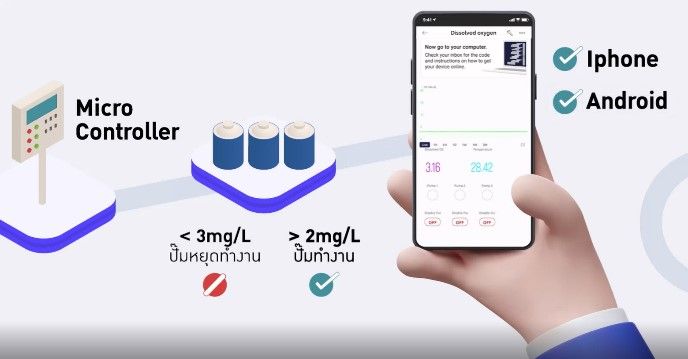EN | TH
Water Stewardship

BDMS enforces water resource management following BDMS Earth Healthcare Policy as well as operates the business in line with the water conservation framework. The objectives are to establish guidelines to achieve the strategic target covering risk assessment in water scarcity as well as to devise a water resource management plan at the corporate level with key partners.
Water Management Guidelines
1. Water Risk Assessment Analyze and evaluate the impact of water scarcity or consumption in business operations to assess potential risks.
2. Water Circularity Management Foster circular water usage in several processes such as water recycling and treatment to ensure high-quality water that can be reused.
3. Modern Technologies and Innovations Enhance water efficiency using technology to reduce water consumption and improve sustainable water management processes, including the improvement of energy usage to manage water more efficiently
4. Wastewater Management Treat wastewater to meet national standards before release to natural resources, ensure environmental protection and mitigate the impact of wastewater discharge.
Water Use Assessment
BDMS sustainability strategy involves the process of reviewing and analyzing water usage patterns. BDMS conducts a comprehensive assessment to identify activities that contribute significantly to water consumption. This involves identifying operational areas or processes that consume significant amount of water. Consequently, the company assesses the impact of water quality to ensure compliance with environmental standards. Through regular reviews and analysis, the company can identify opportunities for improving water efficiency as well as moving toward sustainable goals.
Employee Engagement in Water Conservation
BDMS emphasizes employee participation and behavioral change in reducing water consumption and promoting efficient water use. The organization implements various activities and projects to educate employees on water management while also encouraging the development of innovations, practices, or guidelines that support water conservation.
- Employees are made aware of the importance of water efficiency, fostering a mindset of responsible water use both at the hospital and at home. This helps reduce overall water consumption, wastewater generation, and environmental impact.
- BDMS continuously integrates innovations, technologies, equipment, and new knowledge to enhance water conservation efforts. Employees are also encouraged to voice their opinions and suggest projects, activities, or innovations related to water and wastewater management.
- Water saving initiatives and activities are regularly conducted in hospitals, with follow-ups and assessments performed annually to track progress and impact.
Reduce water withdrawal per unit of revenue
3.05% compared with the base year 2022
Water Management Projects
Upgrade Wastewater System go to Green Hospital By Bangkok Hospital Siriroj
Since its establishment, Bangkok Hospital Siriroj has relied on a Rotating Biological Contactor (RBC) wastewater treatment system that can receive only 70 cubic meters of wastewater per day. However, with business expansion, the quantity of wastewater increased by approximately 30 cubic meters daily, impacting the system’s efficiency. Due to space constraints, the existing wastewater treatment system can’t be expanded to accommodate the increase in wastewater. As a result, the hospital upgraded the system to a Sequencing Batch Reactor (SBR) with a more flexible capacity that can accommodate up to 120 cubic meters of wastewater per day. Since its implementation, the wastewater treatment efficiency has increased to over 80%. Complied with the standards, the treated water is now being used for plant watering. As a result, the initiative reduced the maintenance time for the wastewater treatment system by 1 hour and 30 minutes per day, saving 1,825 cubic meters of water from the Provincial Waterworks Authority per year and reducing costs by 62,052 THB per year. In addition, the initiative was awarded the 1st runner-up in the BDMS Awards 2024 in the Net Zero Healthcare category. This highlights the success in developing a sustainable and efficient water management system.


Improve Wastewater Treatment Monitoring System with IoT By Phyathai Phaholyothin Hospital
Thanks to technological advancements, systems across different fields can now be integrated to reduce work time and enhance operational safety. The Internet of Things (IoT) operates as a network that facilitates communication between devices and cloud systems, allowing them to exchange data. As a result, Phyathai
Phaholyothin Hospital has developed an IoT system to improve the energy efficiency of the air pump in the wastewater treatment system. This development is based on the Ministry of Public Health and the Pollution Control Department’s wastewater treatment standards, which state that the DO optimal level is 2-3 mg/L. Utilizing the PDCA approach, the hospital created the DO level measurement system to control the air pump via a mobile application named “Smart Wastewater.”

